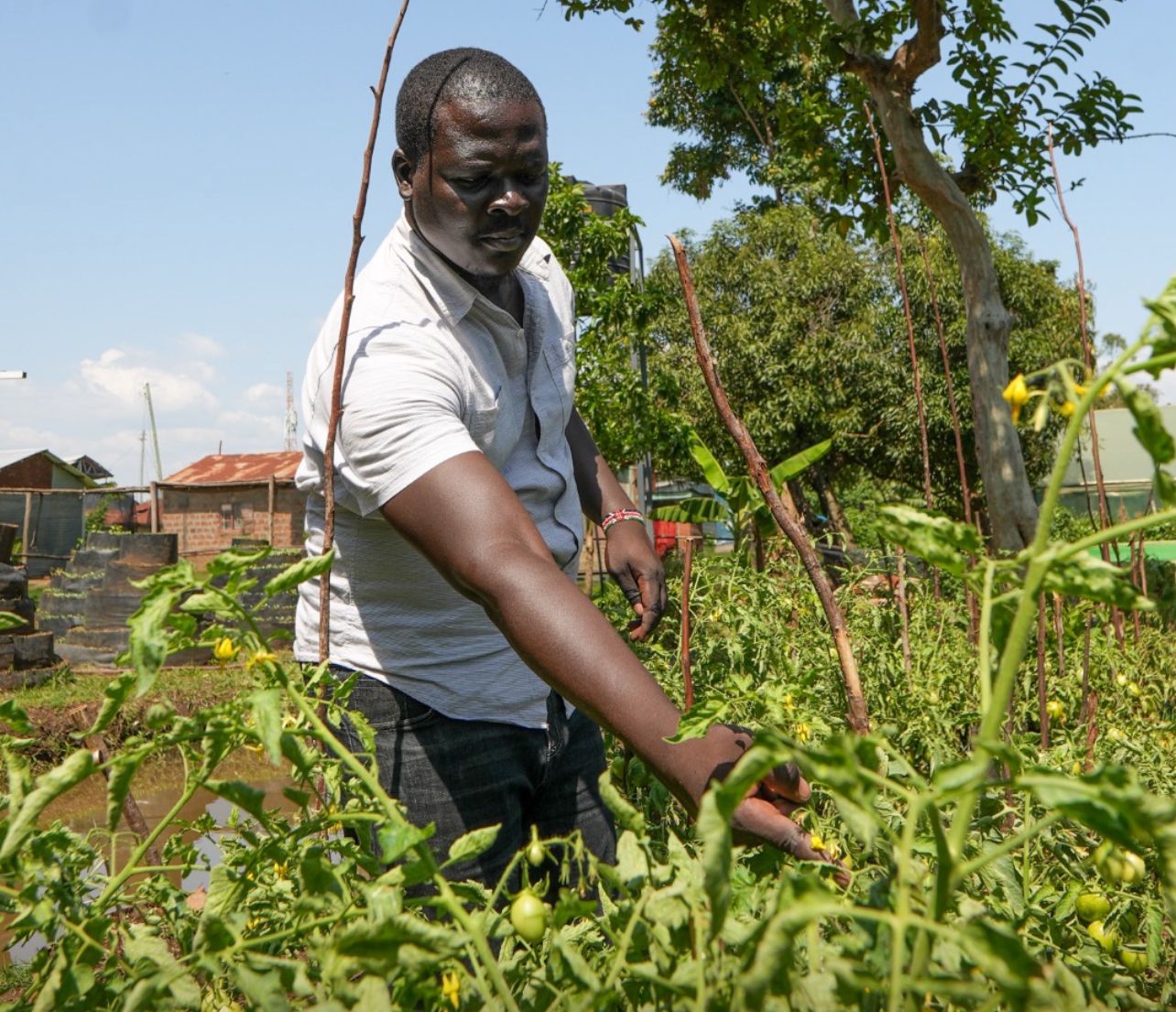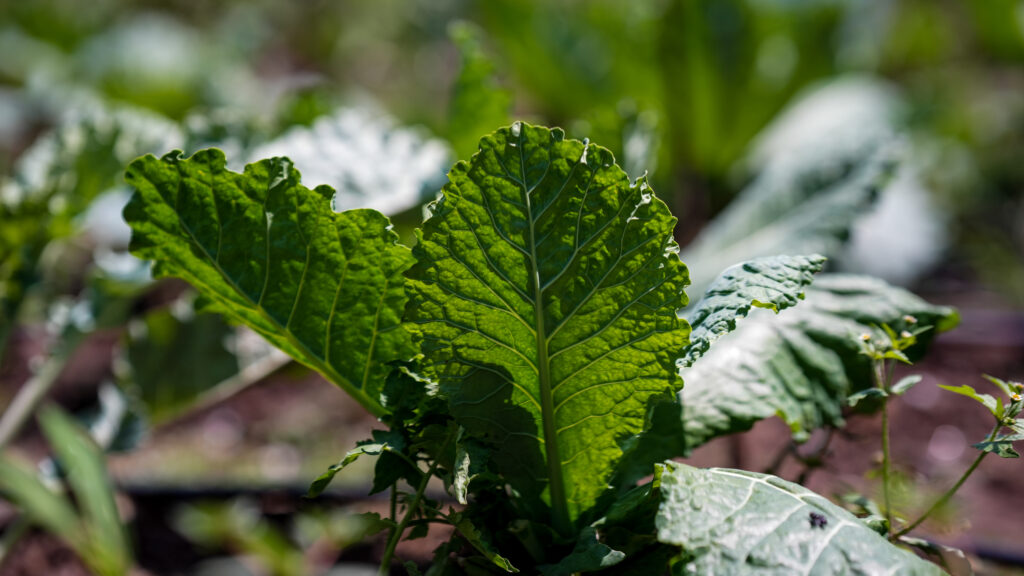
How Youth in Nyalenda, Kisumu, Are Leading a Quiet Revolution » Capital News
KISUMU, Kenya Dec 12 – Beneath the scorching sun and along the dusty, winding paths of Nyalenda, an informal settlement in Kisumu, life thrives in all its contradictions. Makeshift stalls dot the crowded markets, vibrant with the shouts of traders and the aroma of freshly cooked rech (fish). Yet, behind this bustling energy lies the weight of challenges—piles of uncollected waste, joblessness, high rate of crime and the looming threat of climate change.
In the midst of this chaos, hope takes root. At the heart of Nyalenda, a group of determined young minds is rewriting the narrative. The Kisumu Young Agripreneurs (KIYA), a Kisumu County-based Agricultural & Climate Champion Youth Group, is transforming organic waste into opportunity. With their hands in the soil and their eyes set on a sustainable future, they are turning challenges into stories of resilience and renewal.

What most see as discarded peels, rotting vegetables, and scraps destined for landfills, these young agripreneurs see as gold—a resource with the power to transform not just soil, but lives. By turning organic waste into valuable products, KIYA exemplifies the power of community-driven solutions to address climate change and youth unemployment (they are mostly in their early 20s). They are proving that even in a place defined by struggle, innovation and determination can bloom.
Their work couldn’t come at a more critical time. In Kenya, a staggering 40% of food produced annually—about 10 million metric tonnes—never makes it to the plate. Instead, it rots in landfills, releasing methane, a greenhouse gas 25 times more potent than carbon dioxide. For residents of Nyalenda, this isn’t just an environmental crisis—it’s a daily reality. Overflowing landfills pose health risks, pollute the environment, and magnify the struggles of an already burdened community.

For KIYA’s co-founder, Roy Odawa, this problem wasn’t just statistical; it was personal. “The stench and the waste were a problem we lived with every day,” he shared. “But we knew we could turn it into something better—something transformative.” Today in Nyalenda, where their headquarters stand is a testament to this transformation. On a once-neglected plot, KIYA has created a hub of innovation. Lush vegetables, fishponds, and a well-organized compound—complete with modest offices—reflects their tireless efforts.
That “something better” became the foundation of KIYA’s mission: compost and Black Soldier Fly (BSF) farming—two simple yet transformative solutions.
From Waste to Wealth: KIYA’s Innovations
KIYA began with a simple idea: to collect organic waste from Kisumu’s bustling Kibuye Market and turn it into compost. Every week, the team gathers fruit and vegetable peelings and buries them under layers of soil and leaves. Over time, nature works its magic, transforming the waste into nutrient-rich compost that rejuvenates depleted soils.
But KIYA didn’t stop there. They discovered the power of the Black Soldier Fly (BSF), an insect whose larvae are voracious eaters of organic waste. In their cleverly named “love cages,” BSF mate and lay eggs, which are collected and nurtured until they hatch into larvae. These larvae devour waste, leaving behind frass—a fertilizer that’s pure gold for farmers—and themselves become a protein-rich feed for poultry, fish, and pigs.
“BSF farming is a game-changer,” says Roy, with a smile that hints at the pride of someone who’s seen an idea flourish. “It’s not just waste management; it’s creating a circular economy.”
Empowering Farmers, One Training at a Time
KIYA’s work doesn’t end in Nyalenda. They’ve become a beacon of hope for farmers across Kisumu County. Through hands-on training sessions, the group teaches local farmers how to replicate their composting and BSF farming techniques.
For these farmers, the benefits are twofold: they save money by reducing their reliance on expensive synthetic fertilizers and animal feeds, and they earn extra income by selling the organic compost and BSF products.
One farmer, Margaret, who joined a KIYA training session, shares how it transformed her small plot of land. “Before, I struggled with poor yields and high costs. Now, with compost and BSF feed, my chickens are healthier, and my farm is thriving.”
Innovation at the Core
KIYA’s ingenuity doesn’t stop with waste transformation. They’ve introduced an evaporative charcoal cooler and an Aggregation Centre for African Leafy Vegetables (ALVs). The cooler keeps ALVs fresh for longer, reducing post-harvest losses, while the aggregation center ensures farmers can collectively package and market their produce, opening doors to better prices and broader markets.
A Partnership for Change
Behind KIYA’s success is a partnership with Germany’s GIZ, which has been instrumental in supporting this youth-led initiative. Through GIZ’s support, KIYA has not only refined its techniques but also gained access to the resources and networks needed to expand its impact.
Kenya’s collaboration with Germany on climate and development issues finds real-world impact in initiatives like the Kisumu Young Agripreneurs (KIYA) project. The 2022 Climate and Development Partnership between the two nations prioritizes reducing carbon emissions, fostering climate-friendly growth, and adapting agriculture to climate change—goals KIYA brings to life through their innovative waste management and farming techniques.

Supported by Germany’s GIZ, KIYA exemplifies how these partnerships translate into local action. By turning organic waste into compost and nutrient-rich Black Soldier Fly (BSF) products, they are not only reducing greenhouse gas emissions but also creating employment opportunities for youth. Projects like KIYA demonstrate the tangible benefits of the €1 billion investment in bilateral development programs, showcasing how global collaborations can empower communities and foster sustainable growth at the grassroots level.
A Story of Youth, Resilience, and Opportunity
KIYA’s story is one of determination and vision. In a region where youth unemployment looms large, this group has found a way to create jobs, protect the environment, and improve food security—all while inspiring their peers to see agriculture as an opportunity, not a last resort.
As the sun sets over Nyalenda, Roy and his team prepare for another day of collecting waste, nurturing larvae, and training farmers. For them, this isn’t just about waste management; it’s about building a future where young people lead the charge in transforming communities and tackling climate change. “We’re not just teaching farmers,” says Roy. “We’re creating a movement—one that’s about resilience, sustainability, and hope for the future.”
(Author-Ochieng Vincent, Radio Personality and Editor at Capital FM)
About The Author